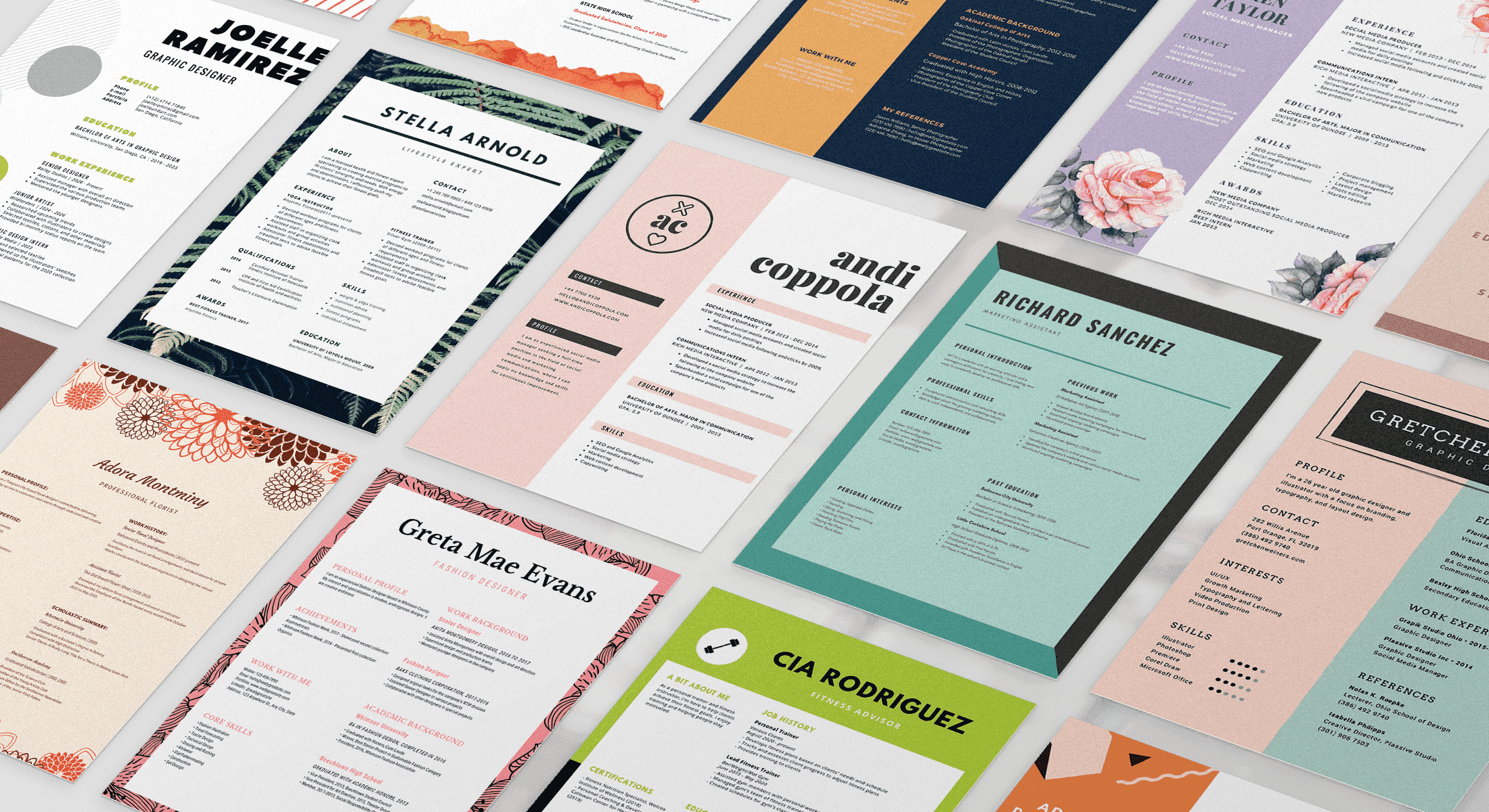Now you C.V., now you don’t
There are very few things that feel more unnatural to me than writing a C.V. This necessary process was a source of deep and sometimes painful introspection last summer, as I reflected on the reason why selling myself to an employer and putting words on my self-worth was so difficult. I will use Schön’s model of the “Reflective Practicioner” [1] to explore the evolution of my reflection on the process of applying for a placement, and how in- and on-action reflection can lead to new perspectives, without easily ‘jumping to conclusions’ (Cunningham, Dawes, Benett, 2004, p.225).
[1]

How I felt then
To me, there was something incredibly presumptuous about pretending to be the perfect person for a job, even for an unpaid internship. Especially so when you suffer from imposter syndrome, which is unfortunately my case. Never before had I applied for a job that was not babysitting for my neighbour’s children, and it was much more daunting to write a C.V. and apply for something I was actually interested in developing a career in. Especially one in the film industry, which I know is a very competitive industry. What if I found out I was not good enough ? The thought of getting an internship and disappointing both my employers and myself was petrifying, as was the thought of trying to get a placement and failing [2]. However, as Alan Jones declares:
‘Nearly everyone who has had the courage to attempt something can remember at least one occasion when it hasn’t worked’
Alan Jones, 1990, p.31
I told myself I would at least try to get a placement, and if I failed, so be it. The process of writing a C.V. and asking for a placement would be painful – and it was – but it would still constitute useful experience for the future. After all, that is the goal of this module: to learn through experience, failure being arguably the best teacher of all.
[2]
Despite this self-encouragement, I avoided writing my C.V. for as long as my anxiety let me [2]. Of course, the more I waited, the more I dreaded it. I knew I would have to sell myself in both my C.V. and cover letter, as well as during possible interviews should a company be interested in me. While writing my C.V., I had to repeat to myself numerous times not to undersell my skills and personality, as it was much easier for me to self-deprecate than to sell myself, which seemed to me like bragging. I would have to fight against my instincts to find an internship, which is one of the reasons why I chose this work-experience module. By choosing to work in the film industry, I knew that I woud have to push myself out of my comfort zone, and this felt like the first step. There is no room for modesty or doubt in this competitive industry. I would have to take a leap of faith and advertise myself to companies I wanted to work with, even though the mere thought of reaching out to them was terrifying. I would prove to myself that my fears would not prevent me from succeeding.
Creating my C.V.
We were told at the beginning of summer to start looking at companies and send our C.Vs. right away to have a chance to find a placement for the upcoming school year, which was guaranteed to no one. For the reasons listed above, I of course did not start looking right away. I did not even have a C.V. ready to send. Some people are pushed to action by their anxiety to succeed, I on the other hand was petrified into procrastination. The only C.V. I had at that point was one I wrote (in French) when I was fifteen for a one-week internship imposed by my school. It was by all accounts not a “winning C.V.” (Jones, 1990), filled with way too much information about my primary school hobbies as well as a very unflattering headshot. I had to start over.
‘Each CV should be as unique as a fingerprint.’
Alan Jones, 1990, p.61
I finally started looking into how to write the perfect C.V. for an aspiring cinematographer two months before the deadline. I told myself that would be enough time to write it without getting too anxious about it. After all, some of my friends had not started theirs either. I thought I was not too far behind on what was expected of me, despite the fact that I knew I should have started two months prior. Little did I know it would take me a full month to write. Immediately, I was overwhelmed by the requirements of creating an appealing C.V. It had to be ‘concise, factual and attractive’ (Clarke, 2001, p.8), professional yet personal, an objective and unique self-portrait. Worst of all, I had to figure out the format which would best convey all of this.
[3]

I had been told many times over that the formatting of a C.V. took hours if not days of frustrating attempts, so I decided to leave that dreaded task for last and started on the content instead. I thought I would have a terrible time realising I had nothing to offer the film industry, but I soon realised that I had much more filming experience than I anticipated. While not professional, my work on student films was enough to fill the “film experience” column, and was more valuable than any other previous job experience. The relevant skills and past experiences followed organically, still keeping in mind my targeted job of operating cameras. I found that describing myself through other people’s words was helpful, asking my friends and family to describe me, or whether ‘adaptable’ and ‘creative’ suited. This allowed me to make this self-portrait more objective without overthinking my worth and employability.
[4]

However easy writing the content was, it took me weeks to finish. I was enjoying the task and streched it for much longer than needed as an excuse to put off the dreaded formatting. Finally, I could not postpone it any longer; the deadline was approaching and I still had not actually applied to any company. I was told to look on Canva, a website designed to help you create your C.V. [3]. This only served to scare me further, exposing a vast array of different options I could not begin to understand how to use. They all seemed too classic, more suitable for an accountant than someone looking for a placement in the entertainment industry. As advised by the module’s film lecturer, I wanted a more original-looking C.V., one that would fit the targeted audience. I therefore asked my brother in law for help and he advised to simply format my C.V. on a Word document. It was much easier than expected and I managed to create the intended document in just a few hours, resulting in a simple-looking and, in my opinion, attractive C.V. [4], the first step in allowing me to finally apply for a placement.
How I feel now
After this rather drawn-out reflection-in-action, it becomes obvious how dreading writing my C.V. made the experience more difficult than necessary. The actual writing of it was much easier and rewarding than expected. Putting words on my skills and personality and establishing previous experiences was not as discouraging as anticipated, as it actually forced me to confront my worth as a filmmaker and creator, which was not inconsequential. It could have taken me just a few days instead of a full month, but the fear of confronting my supposed inadequacy and self-worth as well as the thought of exposing myself to an unknown employer completely paralysed me, preventing me from applying myself efficiently and leading me to miss opportunities. Many of the companies I was interested in answered by saying they would have loved to offer me a place but only took one student a year and someone had already been hired months before, when the module lecturers advised us to start looking, when I should have had a C.V. ready to send. In the end, I was able to find a fulfilling placement with the Big Telly Theatre Company where I was able to showcase my skills, further proving how wrong I was in doubting my ability to adequately perform in a working environment. Self-doubt is incredibly debilitating and I will not let it further undermine my efforts in future job-related endeavours.
Bibliography
Clarke, John. The Right Way to write your own CV. 2002. Elliot Right Way Books, Tadworth UK.
Cunningham, Ian. Dawes, Graham. Bennett, Ben. The Handbook of Work Based Learning. 2004. MPG Bookd Ltd, Bodmin UK.
Jones, Alan. How to Write a Winning C.V.: A Simple Step-by-Step Guide to Creating the Perfect C.V. 1990. Hutchinson Business Books Limited, London UK.
Schön, Donald A. The Reflective Practitioner: How Professionals Think in Action. 1983. Basic Books, Inc. United States of America
Images
[2] https://www.verywellmind.com/what-is-the-fear-of-failure-5176202
[3] https://www.canva.com/create/resumes/
Time Is Everything
You May Also Like

Learning from experience- Am I on the right track?
28 November 2021
First Day Fears
24 November 2021

:max_bytes(150000):strip_icc()/what-is-the-fear-of-failure-5176202-FINAL-d0682f5750d74a57a912537424b76a96.png)